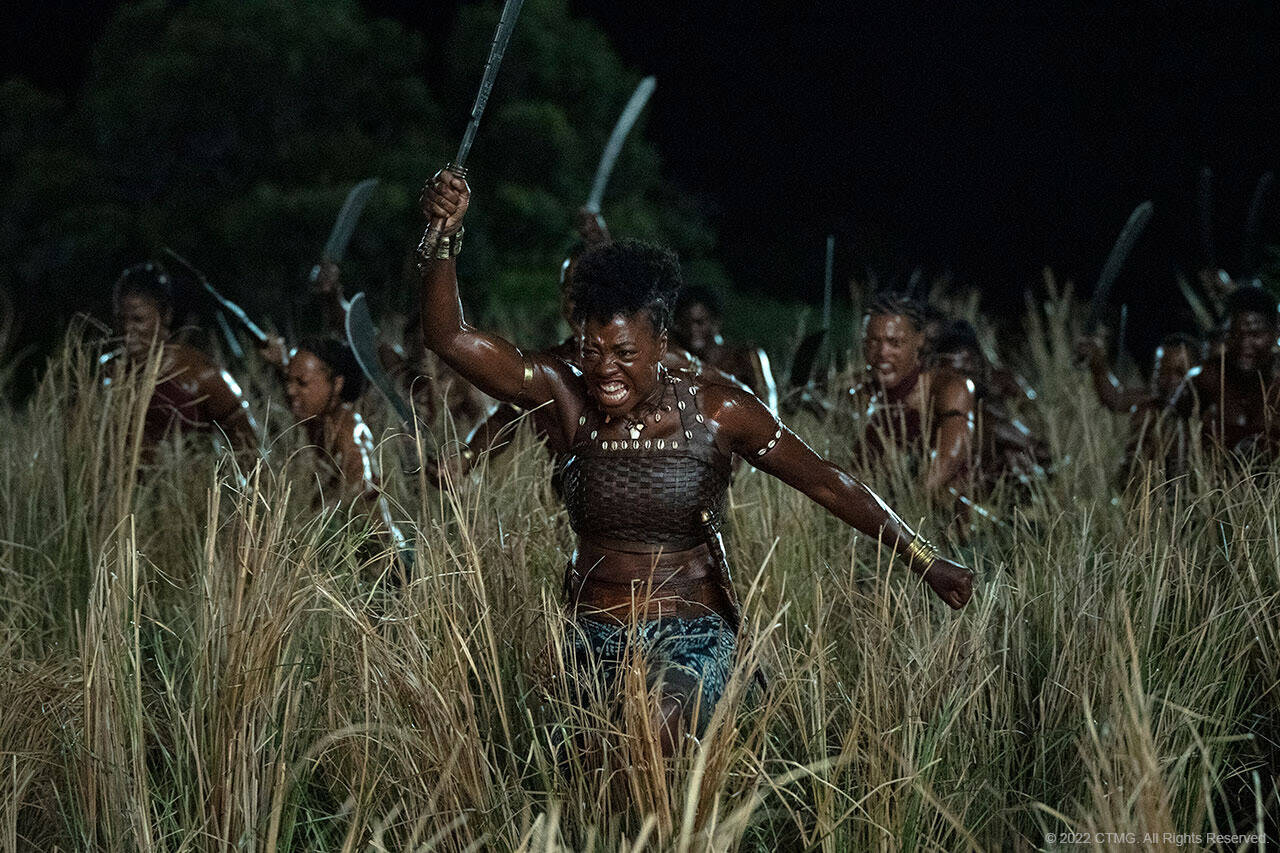It’s tough to imagine a big budget film from a major studio that stars four Black women being released even just five years ago.
“The Woman King” dropped into theaters last week and made a splash critically, bringing home somewhat more modest commercial returns.
I remember working at the Kenai Cinema in 2014 — when it was still the Kambe — and getting phone calls from people upset that we were showing “Annie,” starring the young Black actress Quvenzhané Wallis.
Seeing the push behind last week’s new release “The Woman King,” both from its distributor: Sony — which also distributed “Annie” – as well as from critics and audiences is heartening, and speaks to the long changing landscape of the film industry.
“The Woman King” centers on the Agojie, an organization of elite warrior women who really did exist as protectors of the West African kingdom of Dahomey 200 years ago. Viola Davis headlines the film as General Nanisca, joined by Thuso Mbedu as Nawi, Lashana Lynch as Izogie and Sheila Atim as Amenza. Though the kingdom and the Agojie are pulled from history, John Boyega plays the only character who ever lived — King Ghezo. Davis and the rest of the cast play fictional characters.
The film’s story is largely told through the eyes of Mbedu’s Nawi — a young woman given to the unit by her father after she chases off each of the arranged marriages he prepares for her. She acts as an audience surrogate as she learns the customs, makes a few mistakes and trains to stand alongside the warriors.
Each of the four women in the main roles deliver incredible performances. Davis’s General Nanisca is equal parts resolute and haunted, in a dominant performance by the experienced actress. Lynch was also a standout, stealing scenes in a more comedic role while training the Agojie-hopefuls. Mbedu, a relative unknown, is given the unenviable challenge of acting against Davis in countless scenes, and more than manages to hold her own in a star-making performance.
The action in the film is exciting and well shot, but doesn’t feel like the major focus of the film. Most of the runtime is spent somewhat more quietly, exploring sisterhood and trauma while building its characters for an explosive finale.
“The Woman King” feels cut from the same cloth as contemporary superhero films, combining comedy, drama and action while focusing on characters in a way that would feel right at home in a massive franchise. For that reason, it’s interesting that the marketing seems to focus more on the prestige nature of the film’s origins, billing the film as “inspired by powerful true events,” starring Academy Award Winner Viola Davis.
An elite force of women warriors from West Africa, pulled from actual history books, is a clearly compelling story. The time is now for African women warriors, especially considering the success Disney has had marketing its Dora Milaje from the “Black Panther” wing of the Marvel Cinematic Universe, a unit of elite kingsguard not unlike the Agojie who now make regular appearances at Disneyland.
Some criticism has been lobbied at the film since its release for downplaying the role of the Dahomey in the slave trade, though the film has been defended both by its director and stars Davis and Boyega.
The Dahomey’s participation in the slave trade is explicitly mentioned, though the stances of the fictional General Nanisca and other Agojie warriors paint the kingdom in a distinctly abolitionist light that doesn’t necessarily line up with the real story. There’s a little historical context here in need of some unpacking.
“The Woman King” is a standout film only enhanced by the relative drought of content in the theaters it’s dropping into. The performances are strong, the action is exciting, and though its runtime does wear a little thin by the time it crosses over the two hour mark, this film will certainly entertain.
“The Woman King” will be playing this weekend at both the Kenai Cinema and the Orca Theater. Showtimes can be found at catheaters.com and orcatheater.com.
Reach reporter Jake Dye at jacob.dye@peninsulaclarion.com.

